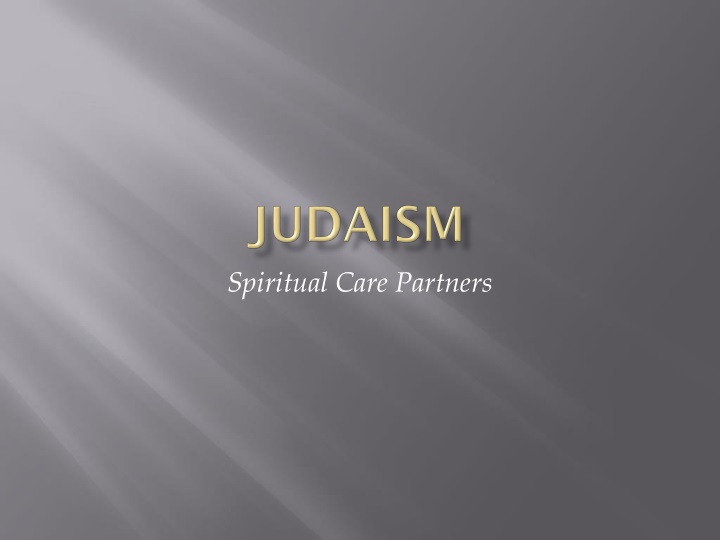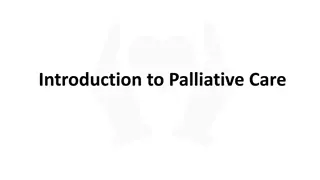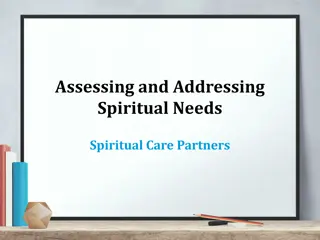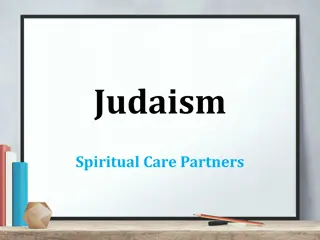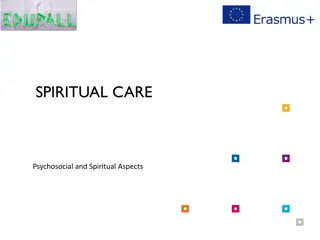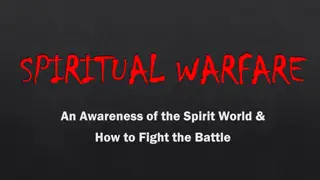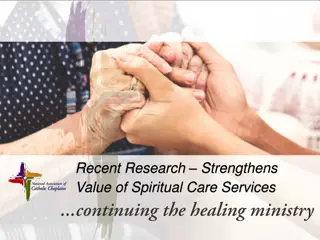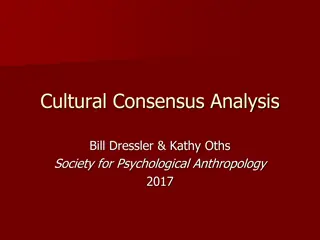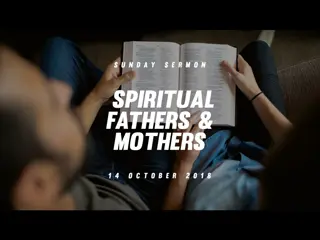Navigating Cultural Sensitivities in Spiritual Care
Understanding the nuances of providing spiritual care in a multicultural setting, this content touches on the beliefs and practices of Jewish patients in a Catholic hospital. It emphasizes the importance of sensitivity, respect, and awareness of varying religious customs to ensure effective support and comfort for individuals with diverse spiritual backgrounds.
Download Presentation

Please find below an Image/Link to download the presentation.
The content on the website is provided AS IS for your information and personal use only. It may not be sold, licensed, or shared on other websites without obtaining consent from the author.If you encounter any issues during the download, it is possible that the publisher has removed the file from their server.
You are allowed to download the files provided on this website for personal or commercial use, subject to the condition that they are used lawfully. All files are the property of their respective owners.
The content on the website is provided AS IS for your information and personal use only. It may not be sold, licensed, or shared on other websites without obtaining consent from the author.
E N D
Presentation Transcript
G-d exists always, created the world, & leads it G-d is One and wrote the Torah The Torah was given to the people at Sinai Moses as the main prophet of the prophets Moshiach to bring peace; resurrection of dead 13 tenants of faith as out lined by Maimonides Written tradition comes with Oral Tradition
The majority of Jewish patients will realize that they are in a Catholic hospital and will feel as if they are not completely at home: Language used with the ill might have religious origins and will not be familiar to them Certain prayers that are more closely associated with Christianity would not be appropriate The Lord s Prayer is unfamiliar, but Psalm 23 is known For some Jewish patients, asking if they prefer a rabbi would be best. Others might be more secular.
Roles include: Religious direction, pastoral counseling, friend/mentor/family member etc. Religious direction includes customs and laws regarding burial and mourning practices Pastoral counseling includes encouragement regarding appropriate emotional expression Sadness: there are varying levels that are okay. No need to be a tough guy. There s leeway. Contentment: It s also not a lack of faith to be ready for death and its really part of protocol to get ready.
Various denominations will have various credo related to the afterlife and what it s like there. Some may stress reincarnating or resurrecting; others stress reunion with loved ones or friends Olam HaEmes referred to on occasion as the world of truth. But the here-and-now is first There s no concept or value in dying to be with G- d because He is with us in life even more so
Be sensitively aware that some might not be open to visits from Christian religious figures Be aware that some might even think that you are coming to proselytize or to save them Judaism does not have missionaries except for outreach efforts to their own, so the knowledge that Christians do, can cause wariness Ask permission to continue with your visit with these ideas in mind for reassurance purposes Know that most times, these are non-issues
Before prayer, general pastoral counseling should be held so as not to make them uncomfortable with jumping into religiosity Prayer might not be wanted by the patient because it was done recently by other acquaintances or for other varying reasons Understand that demographically most Jews are secular and do not go to services regularly i.e. no congregations in the city have more than a hundred parishioners regularly in attendance weekly
The Mishabeirach Mostly associated with services but can be done at any time and includes their personal Hebrew name (if they have one) It would be highly unusual for a non-Jewish person or clergy to recite this on a Jew s behalf Note that classically a prayer for the sick would include a request for healing for other members of the general, broader Jewish community so as to link merits of one to another as part of the greater whole
Tehillim / Psalms These paragraphs mostly authored by King David are the go-to passages for the sick This will be the most recommended recitations for friends, family, and the patients themselves Note that these will generally not be recited following death, but on occasion will be recited to give strength to living, loved ones Psalms 121, 130, 91 are most popular We have books in all the pastoral care offices
The Shema Most ancient and most historical prayer Only biblical and biblically required daily prayer Most known for its recitation prior to passing Often read along with the family s congregational rabbi Talmud states the extensive praise that one is due for this ultimate expression of faith during times of grave danger
On occasion Jewish patients will prefer that the cross in the room be taken down / covered There is no need for this but if it will help them be more comfortable then that s best Comfort and successful care go hand-in-hand During a time of need, unfamiliar religious practice can cause displeasure and undue stress Occasionally, a faith based hospital will help a religious person feel more comfortable Kosher food is another aspect that can help with recovery and all advocacy along these lines would be very appreciated by patients and their families
Major events Three festivals: Sukkot, Pesach, and Shavuot High Holidays: Rosh Hashana and Yom Kippur Rabbinic Fasts: Esther, Gedalia, Tevet, AV Hanukkah and Purim (Calendared Happy Days without long services or restrictions such as electricity, cars, cooking, etc) *It can be particularly hard for people to be inside a hospital during these times. Wanting to really be families and their loved ones on these days.
Rabbi Dovid Asher Bon Secours Richmond, Religious Provider Keneseth Beth Israel (804) 402 6363 RabbiAsher@kbirichmond.com David_Asher@bshsi.org
